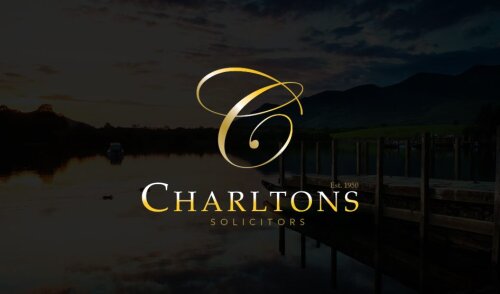Best Guardianship Lawyers in Stoke-on-Trent
Share your needs with us, get contacted by law firms.
Free. Takes 2 min.
List of the best lawyers in Stoke-on-Trent, United Kingdom
About Guardianship Law in Stoke-on-Trent, United Kingdom
Guardianship law in Stoke-on-Trent, as throughout England and Wales, provides a legal framework for the care and management of individuals who are unable to make decisions for themselves due to age, illness, or incapacity. Often, this involves decisions about personal welfare, property, or finances when an adult (also known as the 'protected person' or someone who lacks mental capacity) or a child is in need of support and oversight. The Court of Protection, local authorities, and, in some cases, family courts oversee the appointment and conduct of guardians. Local authorities such as Stoke-on-Trent City Council play a direct role, especially in public law guardianship for children, while the Office of the Public Guardian oversees deputies (a similar role to guardians for adults who lack capacity).
Why You May Need a Lawyer
There are many scenarios where legal advice is essential in guardianship cases. If a family member no longer has mental capacity and needs decisions made on their behalf, or if you are seeking guardianship of a child due to concerns about their welfare, legal processes can be daunting. You might also need legal help if there are disputes among family members, questions about the management of finances, or concerns about the suitability of a proposed guardian. Lawyers can help guide you through complex paperwork, represent your interests in court, and ensure all legal requirements are met to protect vulnerable individuals.
Local Laws Overview
Guardianship cases in Stoke-on-Trent are governed primarily by national legislation, including the Mental Capacity Act 2005 for adults and the Children Act 1989 for those under 18. The Court of Protection handles the appointment of deputies for adults who cannot make certain decisions themselves, while the Family Court may appoint guardians for children, often in public law cases involving local authority intervention. Local practice directions and the involvement of social services from the Stoke-on-Trent City Council are key at a practical level. An additional local aspect is the collaboration between health services, the police, and local councils in safeguarding vulnerable people, which can influence how guardianship matters proceed.
Frequently Asked Questions
What is a guardian, and what are their responsibilities?
A guardian is a person or organisation appointed to make decisions on behalf of another individual who cannot make decisions themselves, either due to age or incapacity. Responsibilities vary but may include decisions about health, welfare, education, and finances.
How does someone become a guardian for an adult in Stoke-on-Trent?
To become a guardian (more commonly referred to as a 'deputy' under the Mental Capacity Act), you must apply to the Court of Protection. The court will assess if the person lacks capacity and determine if the applicant is suitable for the role.
What about guardianship of children - how is this decided?
Guardianship for a child is usually decided by the Family Court, often requested when a child's parents are deceased or unable to care for them. Social services and local authorities, such as Stoke-on-Trent City Council, may also be involved in the process for children in need of care or protection.
Can family members become legal guardians?
Yes, family members often serve as guardians if they are suitable and willing. The court prioritises the child's or protected person's best interests in all appointments.
What does the Court of Protection do?
The Court of Protection makes decisions about the property, financial affairs, and welfare of people who lack mental capacity, including appointing deputies to act on their behalf.
What is the difference between guardianship and power of attorney?
A power of attorney is made by someone with mental capacity to appoint a trusted person to act for them, while guardianship or deputyship is ordered by the court once the person can no longer make decisions themselves.
How long does the guardianship process take?
The process can vary depending on the complexity of the case, the need for reports, and whether the application is contested. Straightforward applications typically take several months.
Can a guardianship order be contested?
Yes. Family members or other interested parties can challenge an application if they disagree with the choice of guardian or believe someone else would be more suitable.
What are a guardian's legal duties?
Guardians and deputies must always act in the best interests of the individual they represent, keep proper records, manage money responsibly, and report to authorities such as the Office of the Public Guardian when required.
Do I need a solicitor to apply for guardianship?
While it is possible to apply without legal representation, guardianship law can be complex. Many people choose to instruct a solicitor to ensure the process is handled properly and to receive advice tailored to their circumstances.
Additional Resources
- Stoke-on-Trent City Council Adult Social Care and Children's Social Care Services can offer advice and support. - The Office of the Public Guardian (OPG) provides guidance on deputyship and supervision in England and Wales. - The Court of Protection deals with applications about adults lacking capacity. - Citizens Advice in Stoke-on-Trent can provide general advice on the legal process and signposting. - The government website for England and Wales offers downloadable forms and detailed guidance on guardianship and deputyship.
Next Steps
If you believe you need legal advice on a guardianship situation in Stoke-on-Trent, start by gathering any relevant documents or information about the person involved. Speak with local social services or your GP for practical assessments if an adult's mental capacity is in question. Consider consulting a legal professional experienced in guardianship law, who can assess your circumstances and suggest the best route forward. If finances are a concern, check whether you might be eligible for Legal Aid or access advice through Citizens Advice. Taking prompt action will help ensure the vulnerable person's interests are protected and the legal requirements are fully met.
Lawzana helps you find the best lawyers and law firms in Stoke-on-Trent through a curated and pre-screened list of qualified legal professionals. Our platform offers rankings and detailed profiles of attorneys and law firms, allowing you to compare based on practice areas, including Guardianship, experience, and client feedback.
Each profile includes a description of the firm's areas of practice, client reviews, team members and partners, year of establishment, spoken languages, office locations, contact information, social media presence, and any published articles or resources. Most firms on our platform speak English and are experienced in both local and international legal matters.
Get a quote from top-rated law firms in Stoke-on-Trent, United Kingdom — quickly, securely, and without unnecessary hassle.
Disclaimer:
The information provided on this page is for general informational purposes only and does not constitute legal advice. While we strive to ensure the accuracy and relevance of the content, legal information may change over time, and interpretations of the law can vary. You should always consult with a qualified legal professional for advice specific to your situation.
We disclaim all liability for actions taken or not taken based on the content of this page. If you believe any information is incorrect or outdated, please contact us, and we will review and update it where appropriate.












